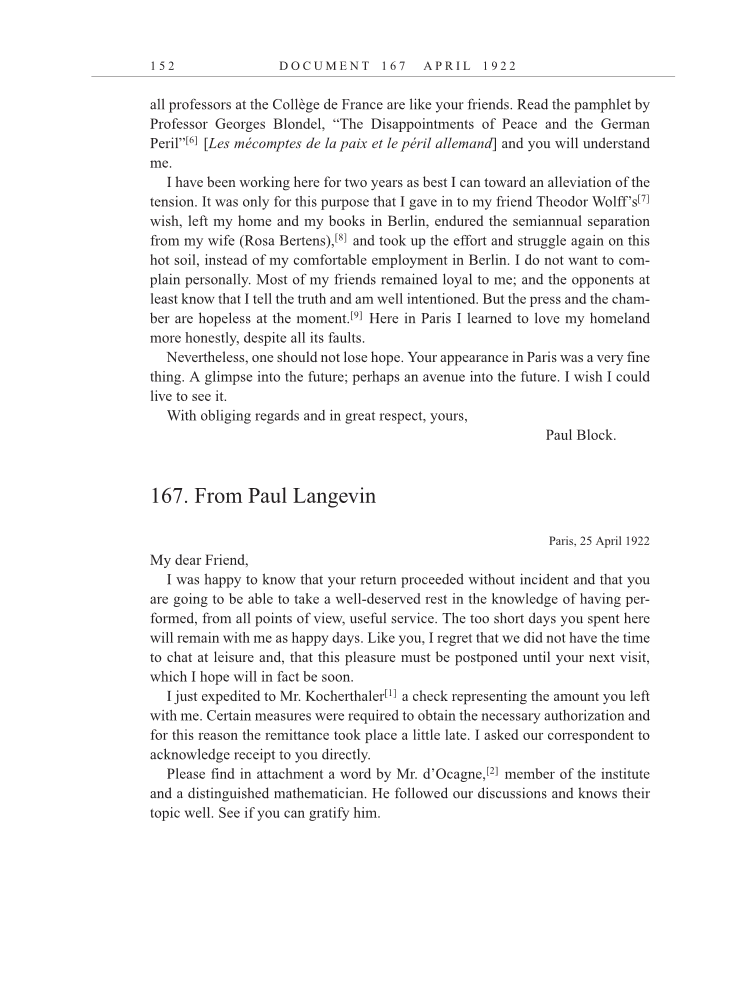1 5 2 D O C U M E N T 1 6 7 A P R I L 1 9 2 2 all professors at the Collège de France are like your friends. Read the pamphlet by Professor Georges Blondel, “The Disappointments of Peace and the German Peril”[6] [Les mécomptes de la paix et le péril allemand] and you will understand me. I have been working here for two years as best I can toward an alleviation of the tension. It was only for this purpose that I gave in to my friend Theodor Wolff’s[7] wish, left my home and my books in Berlin, endured the semiannual separation from my wife (Rosa Bertens),[8] and took up the effort and struggle again on this hot soil, instead of my comfortable employment in Berlin. I do not want to com- plain personally. Most of my friends remained loyal to me and the opponents at least know that I tell the truth and am well intentioned. But the press and the cham- ber are hopeless at the moment.[9] Here in Paris I learned to love my homeland more honestly, despite all its faults. Nevertheless, one should not lose hope. Your appearance in Paris was a very fine thing. A glimpse into the future perhaps an avenue into the future. I wish I could live to see it. With obliging regards and in great respect, yours, Paul Block. 167. From Paul Langevin Paris, 25 April 1922 My dear Friend, I was happy to know that your return proceeded without incident and that you are going to be able to take a well-deserved rest in the knowledge of having per- formed, from all points of view, useful service. The too short days you spent here will remain with me as happy days. Like you, I regret that we did not have the time to chat at leisure and, that this pleasure must be postponed until your next visit, which I hope will in fact be soon. I just expedited to Mr. Kocherthaler[1] a check representing the amount you left with me. Certain measures were required to obtain the necessary authorization and for this reason the remittance took place a little late. I asked our correspondent to acknowledge receipt to you directly. Please find in attachment a word by Mr. d’Ocagne,[2] member of the institute and a distinguished mathematician. He followed our discussions and knows their topic well. See if you can gratify him.
